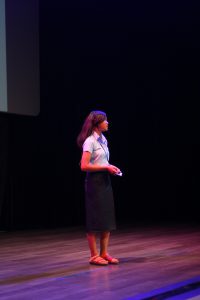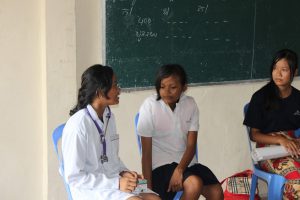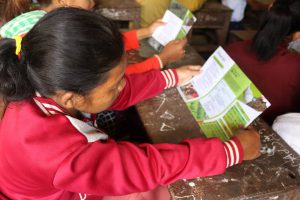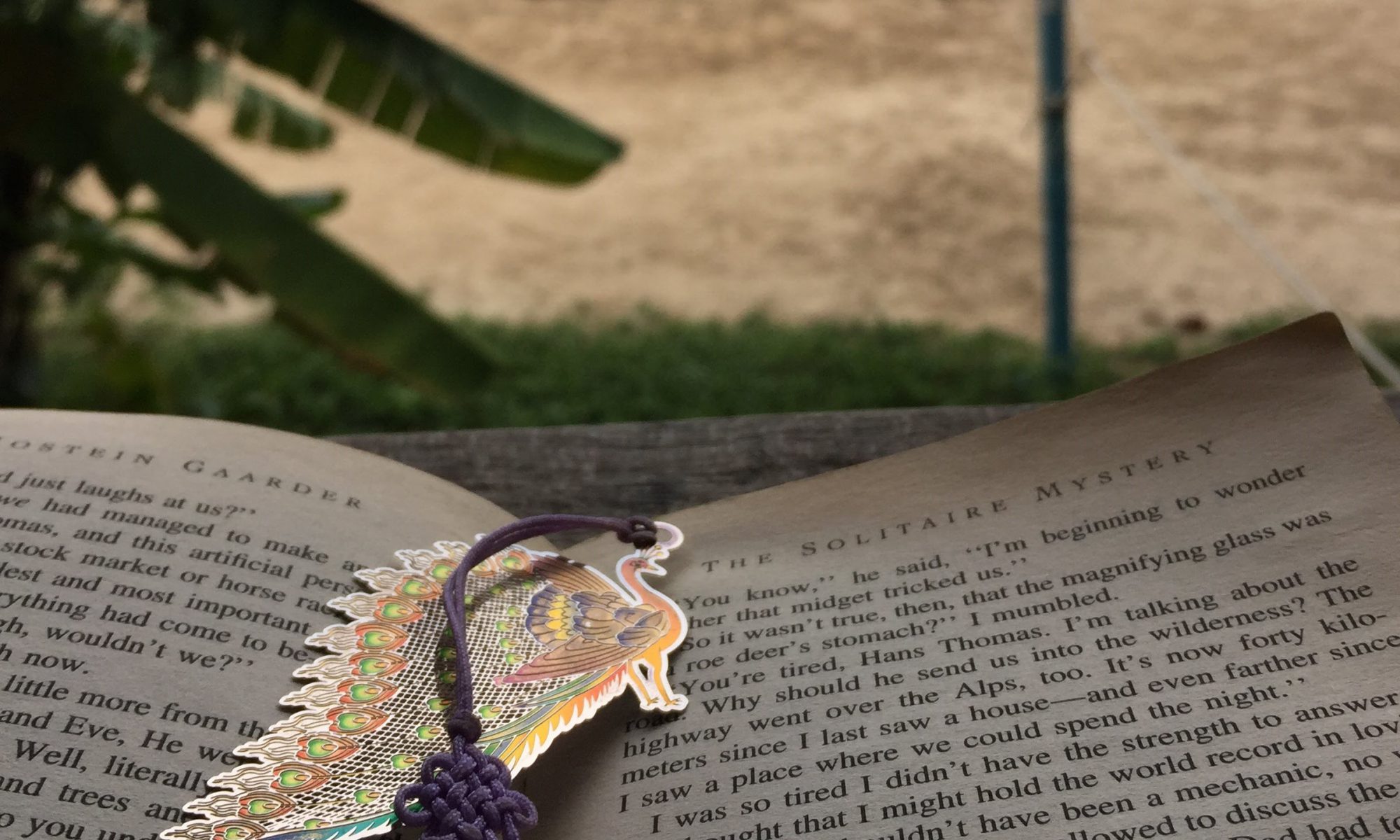This is the fifth year and the first year of being in high school at Liger. A lot of new things this year are much more advanced than last year. Despite the changes from the previous years, Liger’s intention is still the same. It is to positively change Cambodia. Cambodia is a developing country, which means there are a lot of areas that this country needs to improve. As a Cambodian student, I’ve used my knowledge to enhance the condition in Cambodia. So, I’ve made, as well as promote changes in Cambodia on different fields such as health, climate change, and managing waste.
Health is one of the big issues that a lot of Cambodians are facing. There are many areas in health, for examples nutrition and dental. In fact, 40% of children under 5 years old are continuously malnourished, and 28% are underweight. Moreover, a lot of Cambodians start to have diabetes due to the importation of new food from other developed nation. Currently, it’s hard to find a food with the amount of sugar less than the amount we need a day. For example, a can of coke has almost double the amount of sugar a kid needs a day. Furthermore, sugar can cause dental problems for people, especially for children. So in order to raise the awareness of consuming a healthy and balanced diet, my team created a play to educate young students on an island in the Koh Rong archipelago about these problems. The play included the consequences of eating too much junk food and not brushing teeth, while also telling them how to brush their teeth. In addition, I also did a TED Talk on the lack of nutrition in kids diet and the potential food shortages in Cambodia. I also raised a lot of points of how Cambodian people can implement more nutrition into their diet and reduced food waste. I really want to work in the food science field because I am concern about the health of Cambodian people and I’m aware that some of the causes of those problems are the chemical and the lack of nutrition in food.


An issue that the whole world is facing is climate change. It’s important for Cambodians to be aware of the problem and contribute to the reduction of greenhouse gas in the atmosphere. If the whole world doesn’t take any actions, climate change can lead to many consequences, including causing natural disasters, the effects of agriculture (which causes food shortages) and shortages in water supplies. Because of these issues, I was involved in a project to develop a board game about climate change. The board game consists of a booklet with the information about climate change and the consequences of it. As the players play this game, they will realize a lot of alternatives (known as the solution in our game) to burning fossil fuel, which can be the potential energy sources for Cambodia. Besides the alternatives, we also introduce them to the idea of Carbon Credit, which people use to offset their Carbon Dioxide emission. Players will receive Carbon Credit when they built solutions. This game will be implemented to secondary government schools in Cambodia. When my team first brought the prototype of this game to a school, we found out that they don’t even know what climate change is. This would be a great tool for students to learn, and this is what the government wants: a fun way to teach students. The game hasn’t been implemented to the government schools, but it is on its way. Hopefully, students around Cambodia will understand that climate change is a significant issue and they can take action to prevent climate change from becoming a very serious problem.
Another problem is with waste since there are abundant of waste in many parts of Cambodia. Besides the problem of throwing waste away improperly, there’s also a problem with organic waste. People don’t know what to do with it. All of the Liger students are aware that we can reduce organic waste and transfer it into a useful product: compost. My team picked up the project from the previous teams and start to figure out how we can implement a compost business for farmers or villagers. Our team surveyed villagers to see whether they are affordable to make compost or interested in making compost to sell. We found one potential compost producer, which we helped her to start her business. We also did a workshop for around 30 villagers, in Chumposka-ek school, teaching them about the different types of compost and that compost is a potential business for their family. There were a few of them who are interested in starting this business. Making compost is a win-win strategy for villagers, farmers, and the environment. Villagers who don’t have enough income for their family can get profit from making compost. Farmers can use compost to effectively run their farm. By making compost, villagers can reduce organic waste, which is abundant in markets and many other places. I really believe that if this project continues to the next year, it can really make a big impact on villagers in Chumposka-ek community.


Above are just some main ways of changes I’m aware of. There are many more changes I’ve thought of and started this year. I believe that those small changes I made can really help me be prepared to make greater changes for my country in future.
